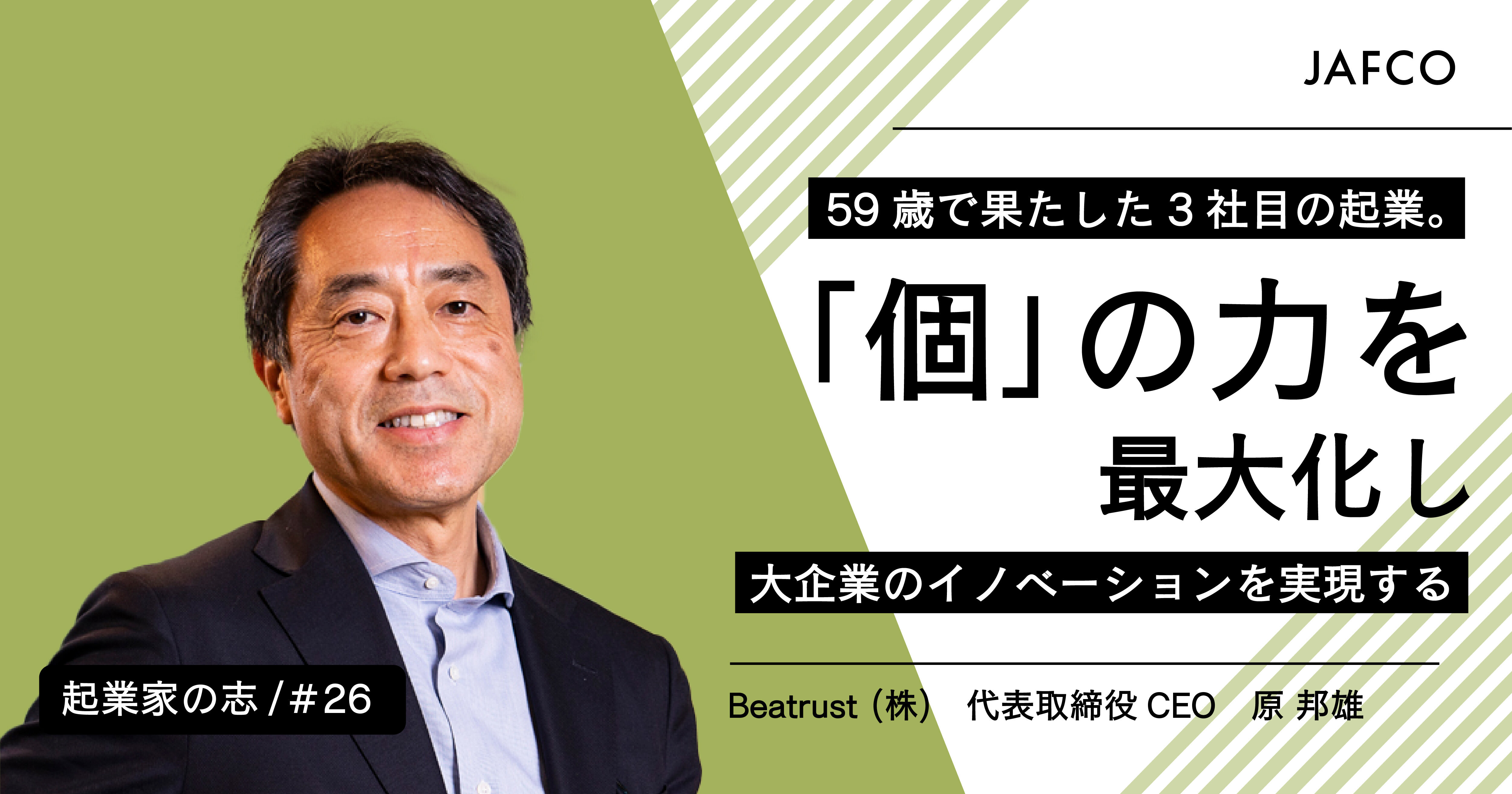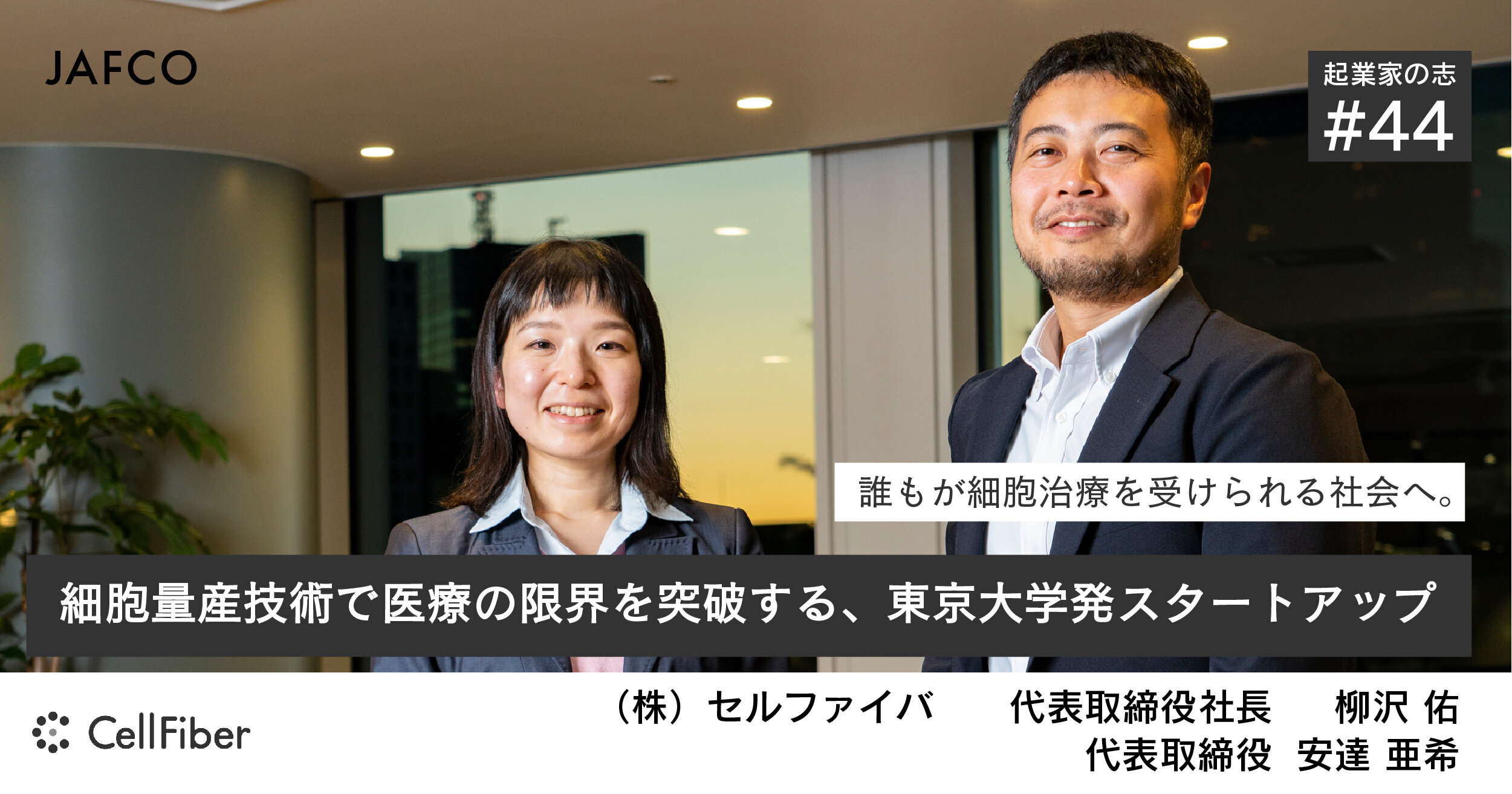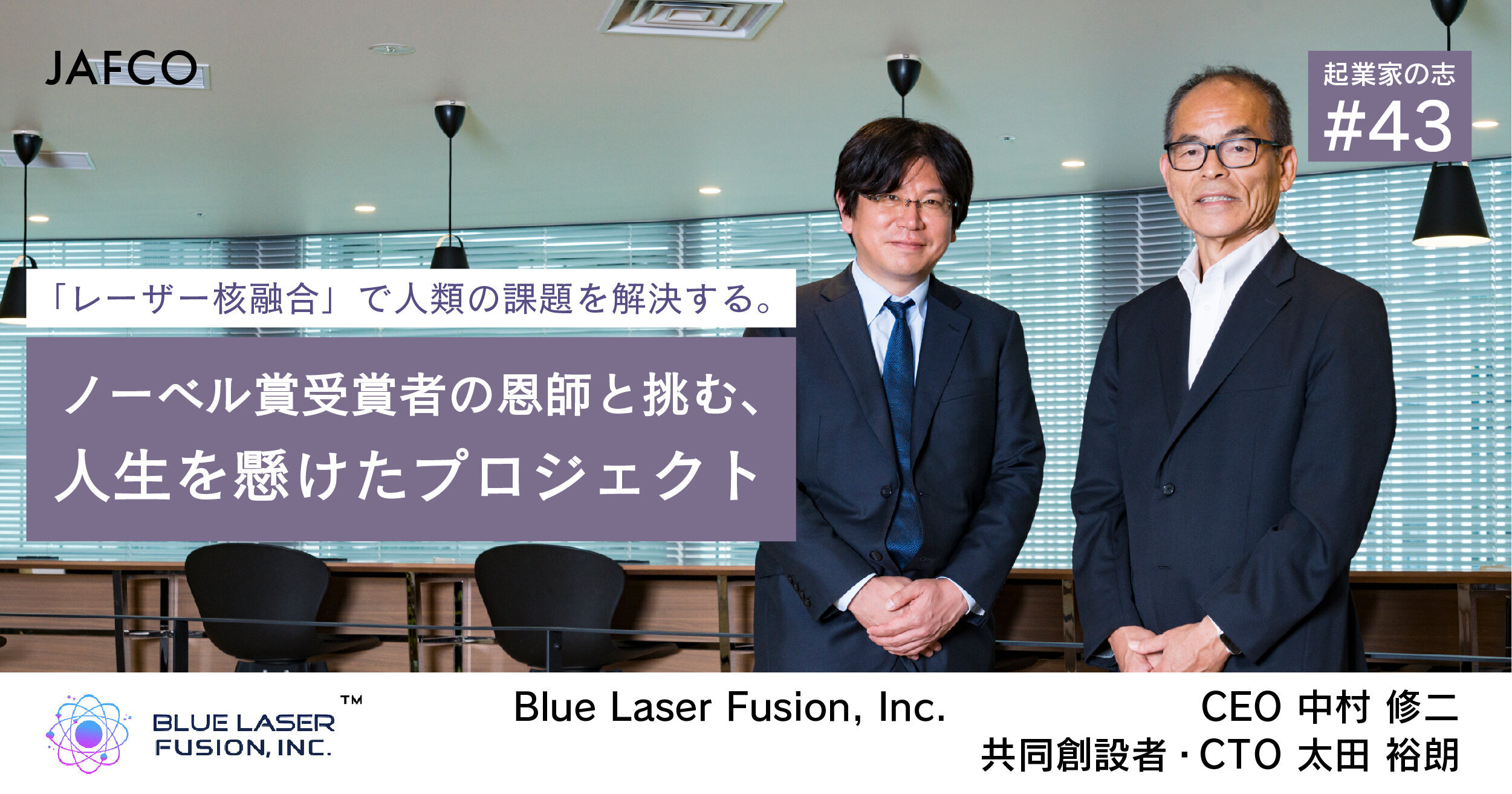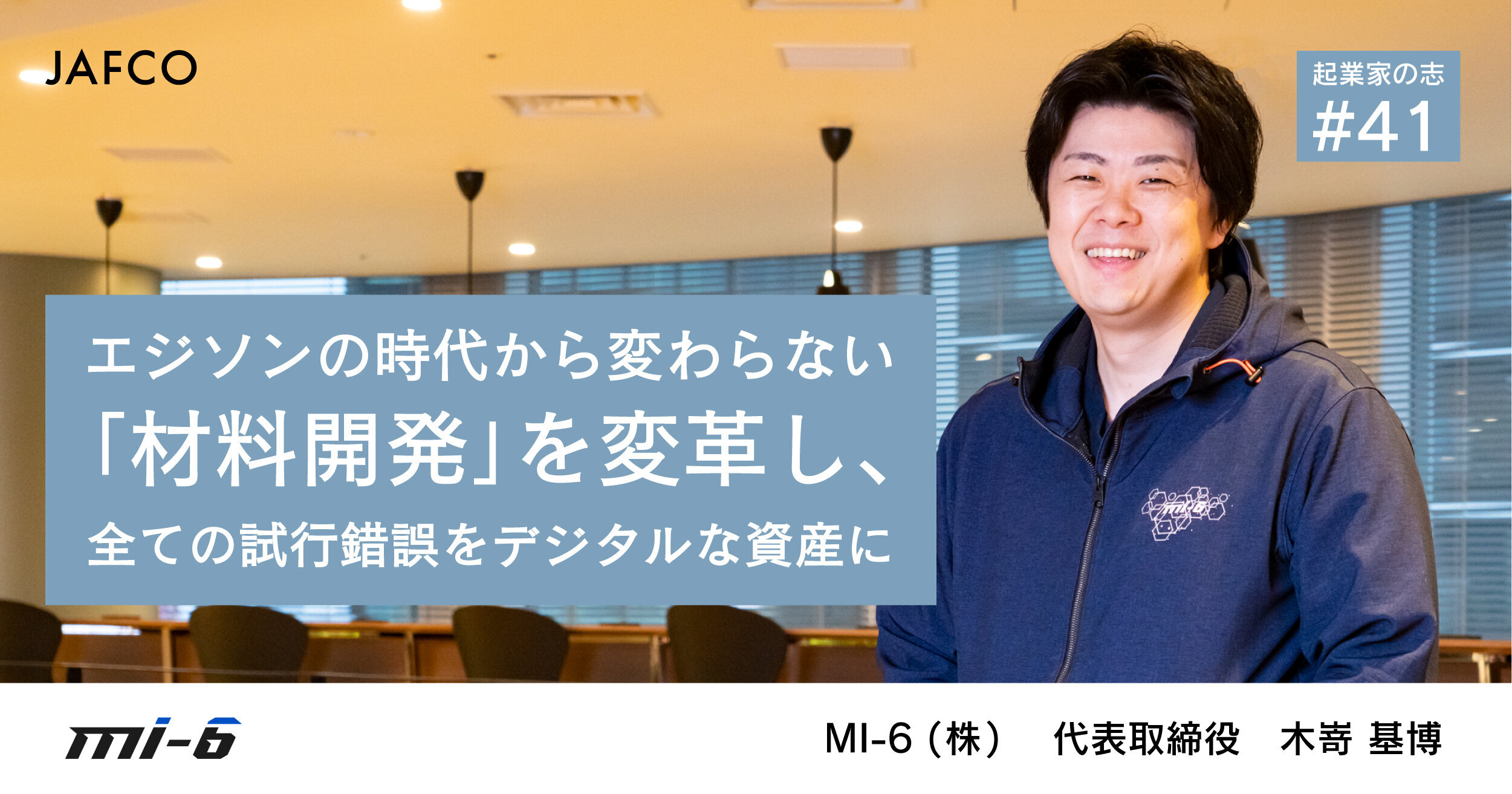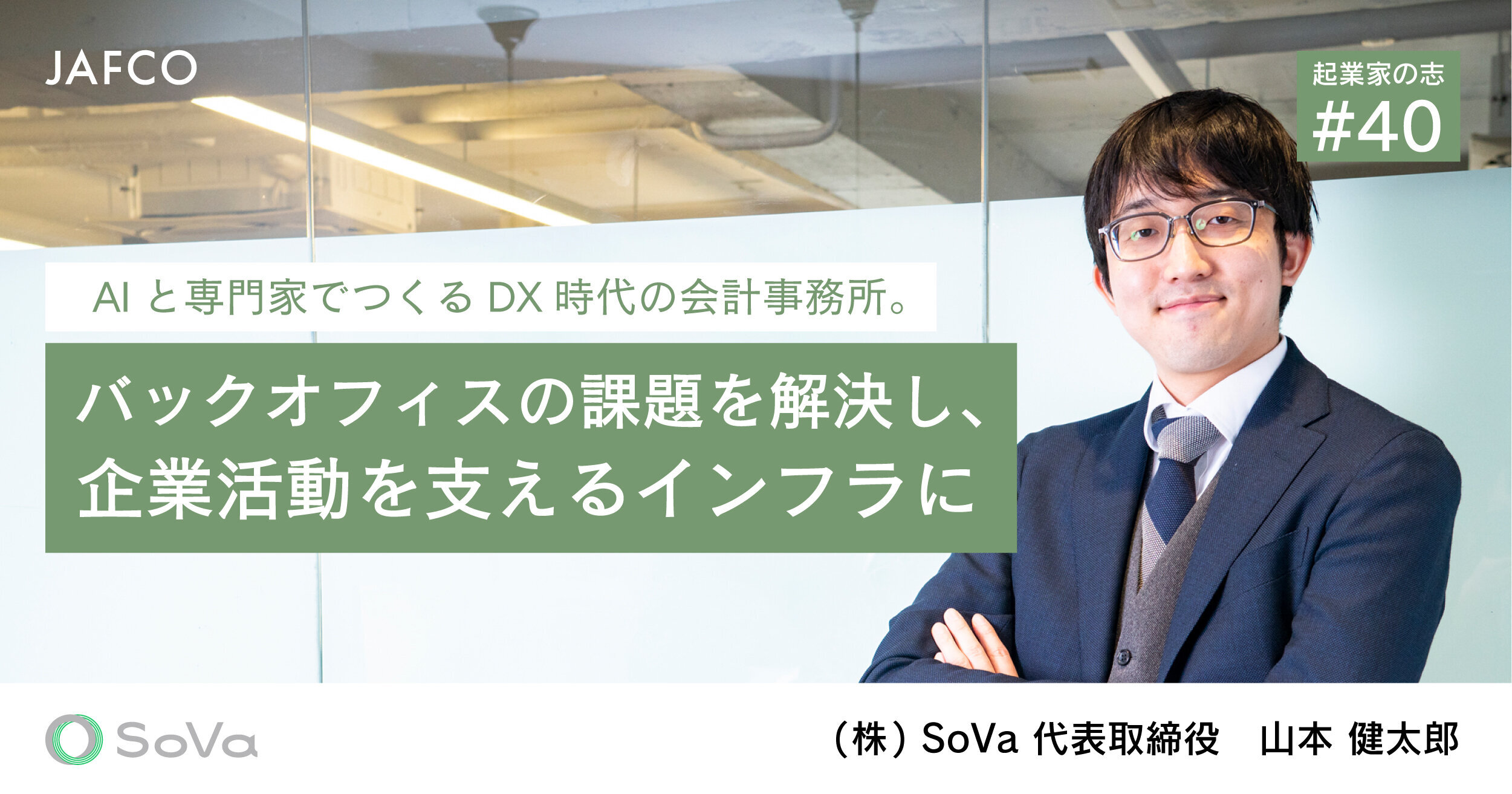"Entrepreneurial aspirations" to hear the background of deciding to start a business, the conflict until the business gets on track, and the desire to realize through the business.
The 26th meeting was attended by Mr. Kunio Hara, CEO of Beatrust Inc. We talked about the challenges of the business in the future, along with the perspective of Atsushi Fujii, the capitalist in charge.
【profile】
Kunio Hara, CEO of Beatrust Inc.
After graduating from Keio University, joined Sumitomo Corporation. Obtained an MBA from Columbia University in the United States in 1989. After engaging in business development at Softbank, he moved to Silicon Valley and worked for Silicon Graphics in the United States. In 2000, he founded and managed a business development consulting company for startups locally. After living in Silicon Valley for 10 years, he established an online marketing venture company. After transferring the business, joined Google after working as an advertising sales representative of Microsoft Japan. As an executive officer and general manager of the sales division, he mainly oversees advertising agency sales. Leading various cross-organizational strategic projects at the company from 2018. Co-founded Beatrust in March 2020.
[What's Beatrust Inc.]
Beatrust is a startup founded in 2020 that provides a platform to visualize individual experiences and skills and promote collaboration. Aiming to build an environment where organizations around the world can collaborate while expressing themselves better, centered on products such as "Beatrust People" and "Beatrust Ask" provided by members with global knowledge and experience. , Developing cloud software services.
Changing the current situation that "large Japanese companies are less likely to innovate"
-Please tell us how Mr. Hara, who came to Google Japan, decided to establish Beatrust.
Hara Google has been in the company for seven and a half years. I was involved in a cross-sectional project. There are three main project contents. Sponsored by the Tokyo Olympics 2020, investing and supporting startups, and supporting innovation for large companies that directly triggered the establishment of Beatrust.
I often talked to executives of large Japanese companies and often heard that they wanted to innovate but couldn't. I also joined Sumitomo Corporation as a new graduate, so I could understand the actual situation well. Why is it difficult for innovation to occur even though excellent people are gathered and passionate? I attributed two things.
One is the climate. Is there a Silicon Valley-style open, flat, collaborative culture where everyone can challenge together without fear of failure? The other is whether there are digital infrastructures and systems in place to support the reform of the climate. It is difficult to change the climate of a large company directly, but we can help change the climate by providing infrastructure. With that in mind, we co-founded with Masato Kume, who was the same team in Google's startup support project.
-What points did you focus on when developing digital infrastructure that supports innovation?
Hara "Visualization of people". Google has 120,000 employees worldwide, and many of them join the company mid-career. In order to gather people who are suitable for the project, I realized that the effectiveness of the composition will change depending on whether or not they can understand their strengths, skills, and experience in their previous job. Google has a variety of in-house tools, and a 20% rule that "employees must spend 20% of their working hours on the project they want to do", so people who are fit for a particular theme. It was possible to quickly collect and launch the project in a couple of months.
Taking inspiration from the experience of such a major US IT company, I wanted to support such activities so that other companies can also do it. What I developed was to visualize human resources information and activate collaboration and co-creation. Platform "Beatrust". The feature is that each person's skills and experience can be visualized with "tags". There are three ways to create tags: you can attach them yourself, have people attach them, and have AI automatically extract them. We have devised ways to make it easier for anyone to express themselves.
The "Beatrust Ask" function is a function that visualizes people and encourages subsequent matching. If you post "I want to solve this kind of problem, isn't there such a person?", AI will analyze the appropriate person, target that person, and skip the question. Even if you send it to a wide area, it tends to be passed through, so you can approach people who are likely to be interested with a pinpoint. In the future, we plan to automatically generate a community space between people with the same tag so that issues and requests can be shared there as well.
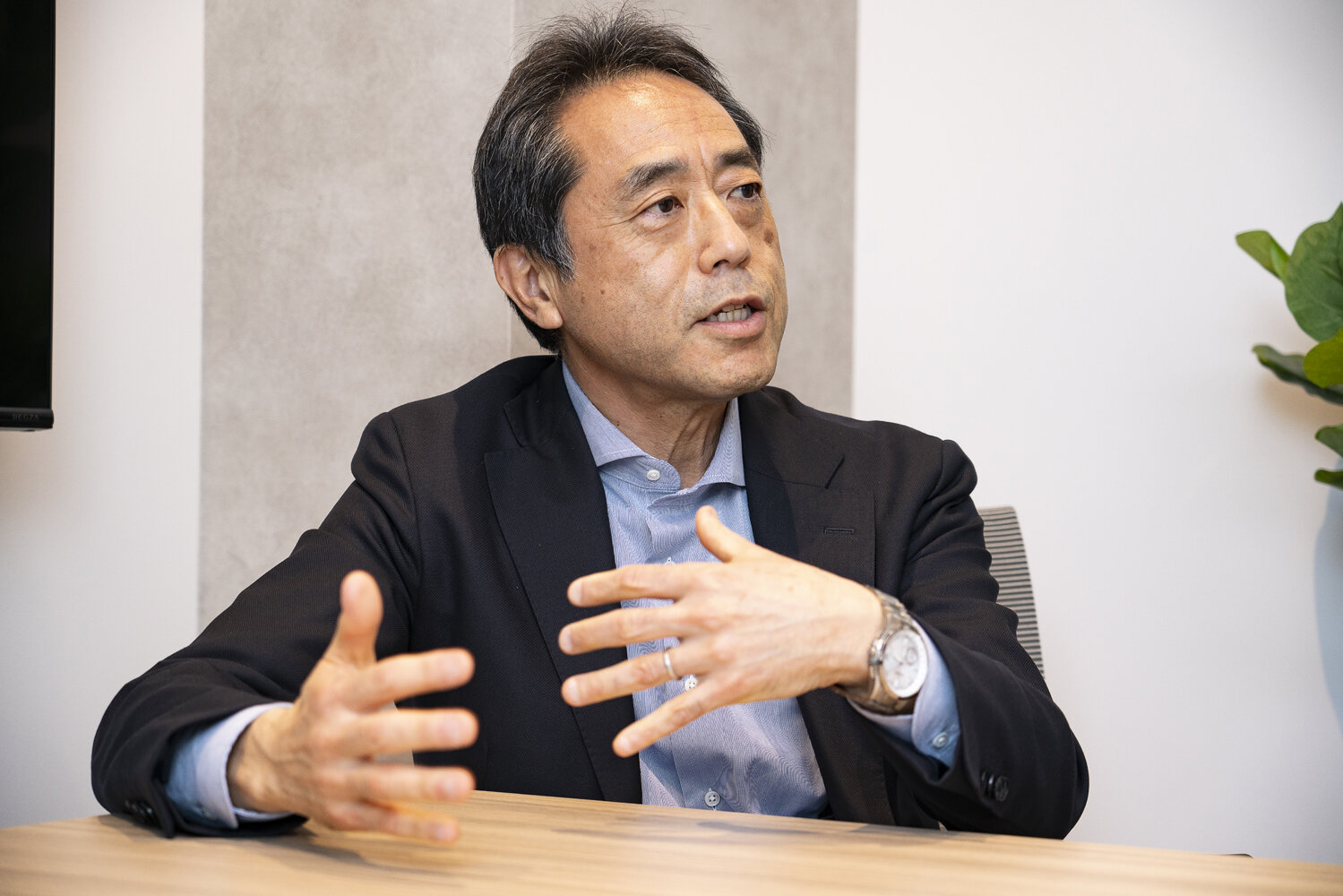
-Are these digital infrastructures usually in place for companies in Silicon Valley, where innovation is frequent?
Hara Large companies in Silicon Valley often use in-house developed employee search tools like Google. On the other hand, Japanese companies still manage their employees in the same way as the old-fashioned phone book.
However, I also think that it is difficult to support climate reform simply by providing tools that visualize people. Because, in order to permeate the visualization of people, it is necessary to have an organization with high psychological safety that can expose and express one's true strengths, and an organization that exposes oneself as a successful experience. is.
Even at the matching stage, there are always some sontaku such as "It's rude to talk to seniors in different departments" and "I think it's better to go through my boss", and if you don't change that value, it's difficult to connect to the next action. Is the fact. That is the part that we are currently challenging.
First, talk with the company where you are introducing the system, and set KPIs and KGIs together to find out what the organizational issues are and what you want to solve using "Beatrust". While analyzing the trends of each company through trials, we will accompany them to solve problems. In addition to visualizing people, we also help companies achieve their organizational goals by leveraging onboarding and technology.
-What kind of issues do companies that introduce "Beatrust" often have?
Hara The common issue is how to respond to new work styles and hybrid work styles. Beatrust claims to be "talent collaboration" rather than "talent management", and is a tool for employees rather than HR or managers. There is no other tool like that, so that's what people are attracted to.
As departments with needs, R & D departments that have weak horizontal connections even though innovation occurs only by collaborating, sales departments that need to take over client information, new businesses and DX that collaborate across the company to create new things. Department. In many cases, executives who have such a sense of on-site issues are interested in it.
He believed in the "potential" of the business and evaluated it.
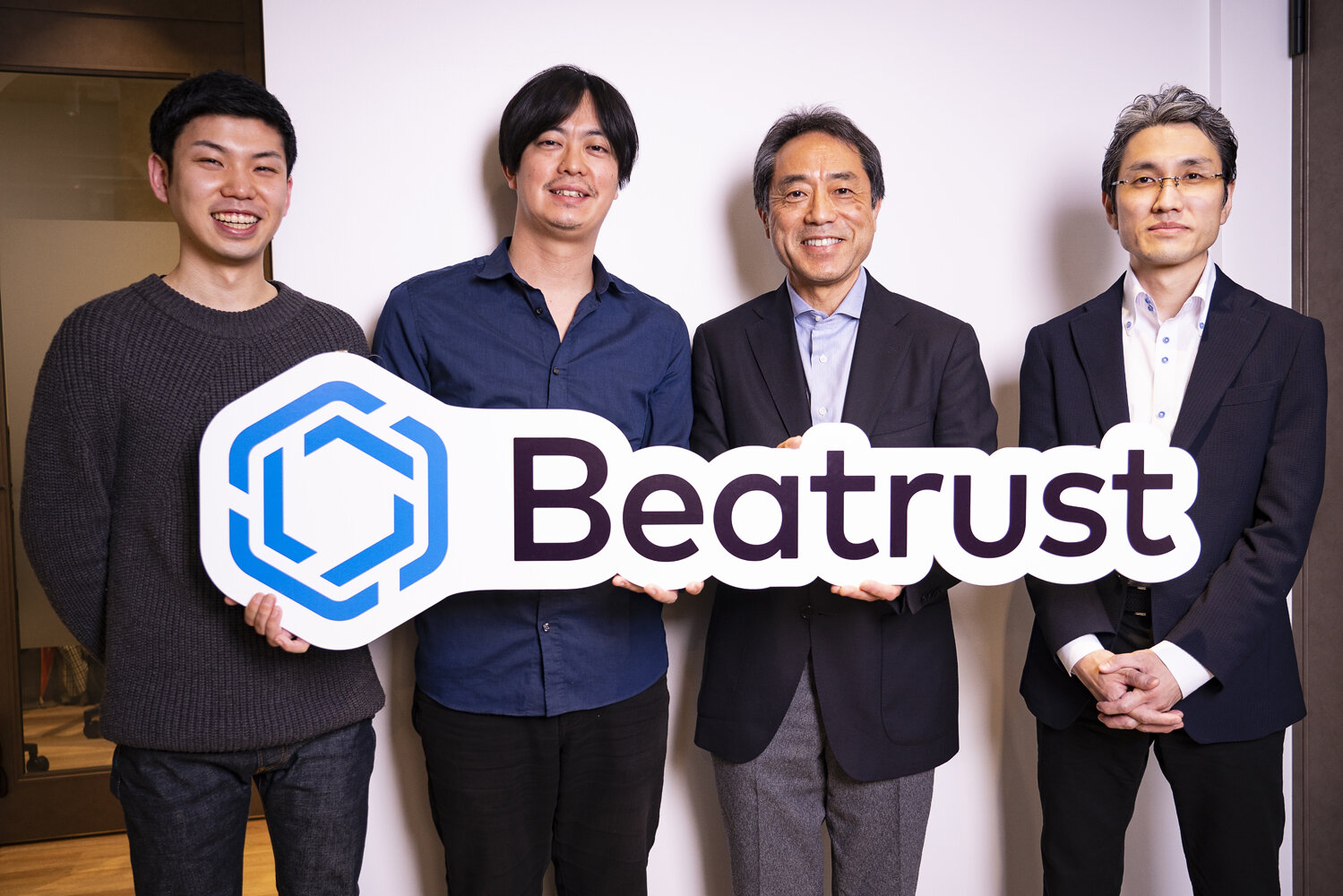
From the left, Iria Takahashi, the capitalist in charge of JAFCO, Masato Kume, co-founder of Beatrust, Kunio Hara, CEO of Beatrust, and Atsushi Fujii, the capitalist in charge of JAFCO.
-This time, we raised funds through JAFCO's lead investment. Please tell us about your encounter with the capitalist in charge.
Hara Mr. Fujii was in charge of investment, LegalForce This is an introduction from President Tsunoda. I met Mr. Tsunoda when I happened to be next to him at a bar in Akasaka, and later consulted with him, "I'm looking for a lead investor for seeds," and he introduced me to Mr. Fujii. A person with an outstanding sense of stability.
Fujii Thank you (laughs). The first interview was in March 2020, just before the first state of emergency was announced. Mr. Hara was still at Google at that time and was supposed to visit the head office, but due to the influence of Corona, he was stopped by the guards.... We asked about the business concept at a nearby coffee shop.
-What was your first impression of Hara and your business?
Fujii With your impressive background and title, why are you starting your own business? I was genuinely curious. When I spoke with him, I felt that his ideas and vitality were very young compared to his age. I have always felt that large Japanese companies have not been able to fully utilize the advantages that only large companies can offer, and I was interested in your business concept, including the fact that it is in line with the current trend of reforming the way people work. However, I was not interested in financing the project at the time because it would take time to see the effects of the project and because the future was unpredictable due to the Corona disaster.
Hara I asked Mr. Fujii, "Please let me talk again in the next round after showing a proper track record." 2020 Year 6 Completed seed funding in May, 2021 Year Ten I contacted you again when I started procurement activities again in the month. other VCs I also approached , but we have a long-term relationship in the future, have an understanding of business for large companies, and can support us when expanding overseas. VCs There weren't that many.
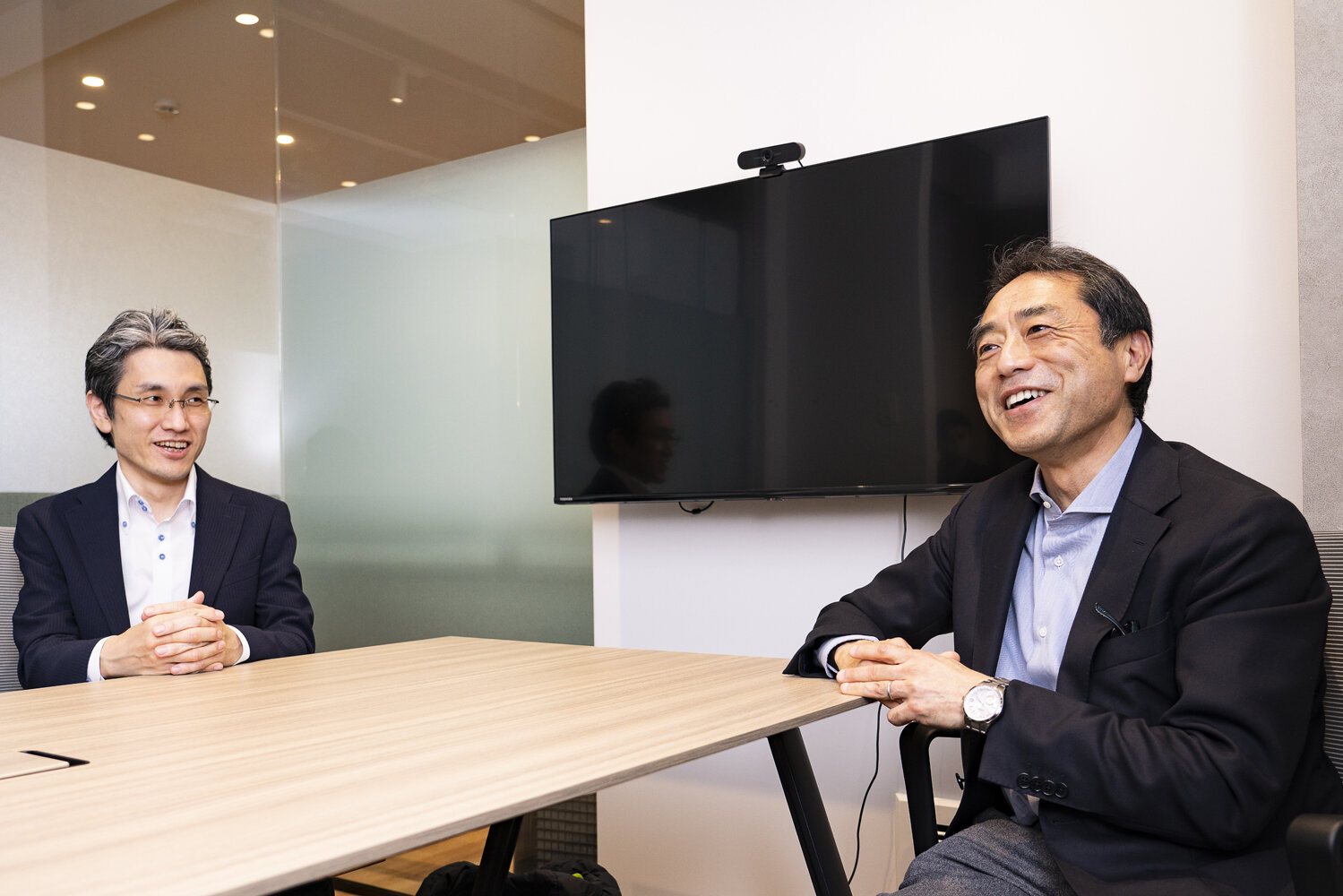
-Why did you choose JAFCO as the lead investor?
Hara The most important factor was the chemistry between Mr. Fujii and Mr. Takahashi. The deciding factors were, of course, their ability, experience, and network, but also that they were easy to work with and that they understood and supported our company. No one knows in the end whether the business will be successful or not, because it is a challenge that has never been done before. In that situation, Jafco believed in the potential of our business and evaluated us. There were actually not many VCs like that.
-What kind of support do you currently receive?
Hara It's just after the kick-off, so we hold regular monthly meetings to discuss what we would like to see in the future. Customer introduction, recruitment of experienced large enterprises, PR for future scale, customer introduction and research cooperation for overseas expansion, etc. Regarding overseas expansion, we are planning to expand from areas with high literacy, and we would like to start pilot operation at several companies in the United States within this year. There are few Japanese startups that can be used overseas, so I would like to actively challenge myself to set a precedent.
-Please tell us your impressions of each other now.
Hara Mr. Fujii is a person who talks from an entrepreneurial perspective. Not only the opinion as a VC but also the true intention is spoken honestly, so it is very reliable. I think he is the type of capitalist who can motivate entrepreneurs.
Fujii I am very glad to hear you say so. Mr. Hara is an entrepreneur with a can-do attitude. When we first met, I thought it would take time to change the corporate culture, but with the encouragement of the COVID-19 pandemic, when I met with him again, he had made amazing progress in introducing the system to large companies. The word "can-do" may give the impression of guts, but Mr. Hara is very skillful and smart in the way he builds up to the execution. I feel that Mr. Hara is a hybrid type of person who has both the same sensibility and passion as a young manager and a wealth of experience that a young manager does not have.
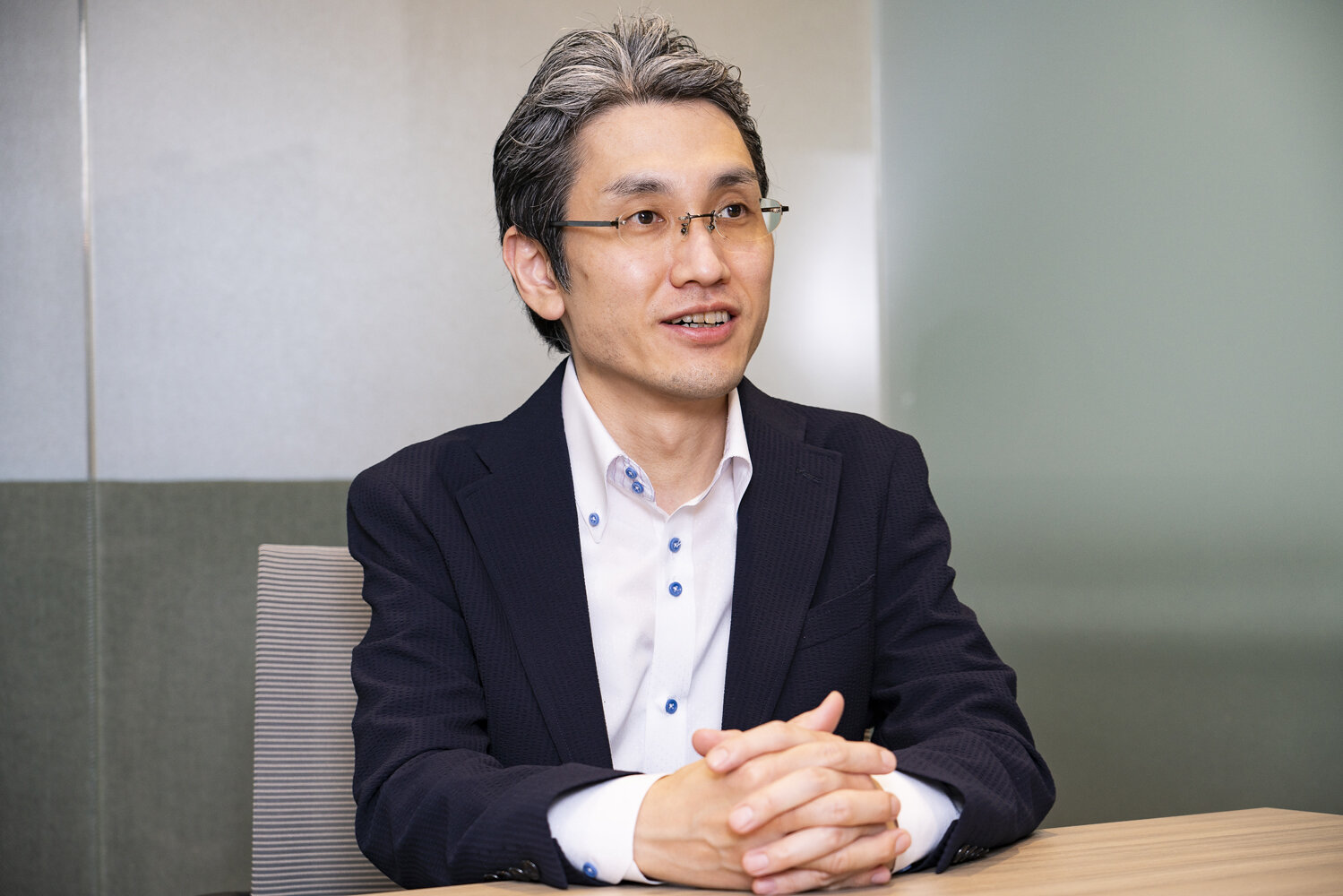
I want to make it a platform that supports "individuals"
-After joining Sumitomo Corporation as a new graduate, I have been transferred to Softbank. Why did you decide to move into the IT industry?
Hara After joining the company 3 About a year later MBA I went to the United States to study abroad and had a summer job experience at an investment bank, which was a pay-for-performance culture that was unthinkable for Japanese companies at the time. At that time, my outlook on career changed and I strongly wanted to work in a world like this. The job at Sumitomo Corporation was also rewarding, but I was invited by a senior at university to Softbank in the early days of its founding. 1992 I changed jobs in the year. IT Rather than being interested in, Masayoshi Son passionately talked about his vision in the interview, and I was attracted to it.
-After joining Silicon Graphics Inc. in the United States, I went to Silicon Valley Ten Live in the year 1 I also experienced the start-up of a company.
Hara Silicon Graphics unfortunately declined, and my colleagues started quitting and starting new businesses and changing jobs. However, the Internet bubble burst there, and I had no choice but to change the business format. At that time, Silicon Valley was starting to turn its attention from the domestic market to the global market, so I set up a consulting company to support partnerships and licensing with Japanese companies in order to globalize American startups.
The second company was started after returning to Japan in 2006. After receiving advice from a large corporate consultant who was with me in Silicon Valley, "Why don't you practice learning in Silicon Valley in Japan?", I returned to Japan and established an affiliate marketing company specializing in high-priced products. .. It was quick to start up after investing in VCs in Japan and the United States, but the investment stopped due to the subsequent Lehman shock, and the business was transferred in 2009. I joined Microsoft Japan because of my relationship, and in 2012 I joined Google.
-Beatrust is Hara's third company, starting a business at the age of 59. What was the source of that motivation?
Hara After 30 years of career in the IT industry, I felt like I had done what I wanted to do. But when I came up with the idea for the business, I was very excited. I didn't hesitate because my underlying idea was "I want to do what I'm most excited about."
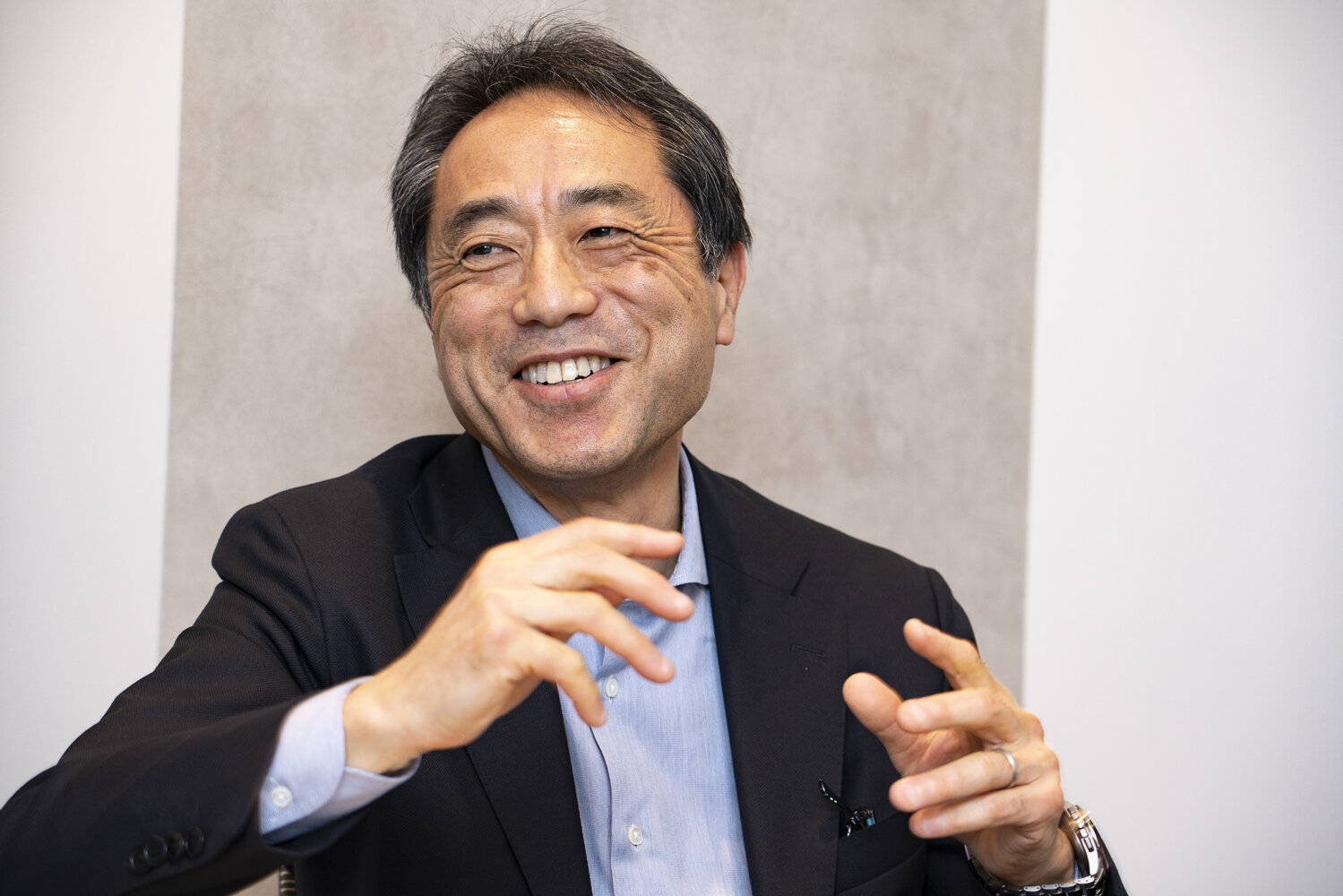
-Finally, please tell us your vision as an entrepreneur.
Hara Our vision is "to create a world where everyone can realize their best self." The underlying desire is to create a platform that supports "individuals." First, we will revitalize the "individuals" in the company and contribute to innovation. Next, we will connect the "individuals" of companies and create a foundation for collaboration that transcends the boundaries of companies. Ultimately, we will create an infrastructure that allows individuals to connect with people around the world, participate in projects, hone their experiences, and have exciting experiences. The United States is already said to be in the Great Resignation era, but Japan may lose the concept of a company in the next 5 to 10 years, and the era of "individual" power may come.
Japan, formerly known as "Yamato," was originally a country that values harmony and collaboration. As soon as an organization is formed, culture is born and sontaku begins, so the key is how to break through that. If people are not active, the company will not grow. It is the same not only in Japan but also in overseas companies, so I would like to create an environment where everyone in the world can make the most of "individuality".
Person in charge: Atsushi Fujii Comments from
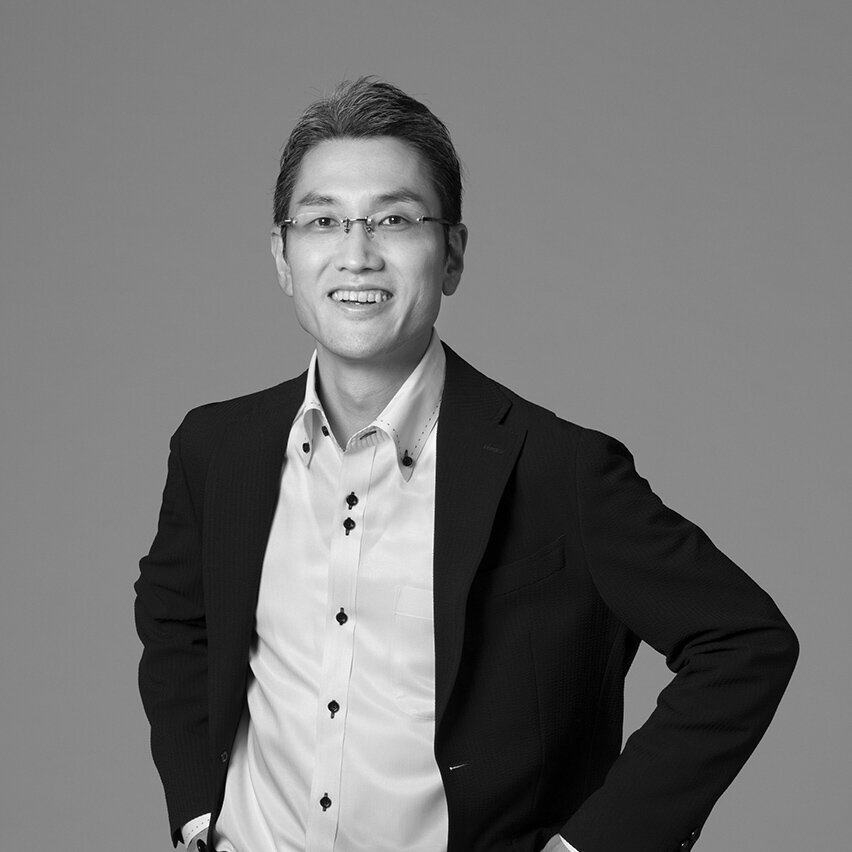 For a long time, Japanese companies have adopted a structure that is often referred to as a "line organization" or a "superiorsupport system," but this has begun to change in the wake of the Corona disaster and work style reforms. Beatrust is helping individuals connect with each other to create new value. Many conventional talent management systems were developed for HR and managers to search for employees, but Beatrust 's platform allows for "talent collaboration" among employees. Mr. Hara mentioned earlier that "Japan is a country that originally values harmony and collaboration," and I hope that "Beatrust"will help maximize the value of Japan's strengths and realize numerous innovations.
For a long time, Japanese companies have adopted a structure that is often referred to as a "line organization" or a "superiorsupport system," but this has begun to change in the wake of the Corona disaster and work style reforms. Beatrust is helping individuals connect with each other to create new value. Many conventional talent management systems were developed for HR and managers to search for employees, but Beatrust 's platform allows for "talent collaboration" among employees. Mr. Hara mentioned earlier that "Japan is a country that originally values harmony and collaboration," and I hope that "Beatrust"will help maximize the value of Japan's strengths and realize numerous innovations.

